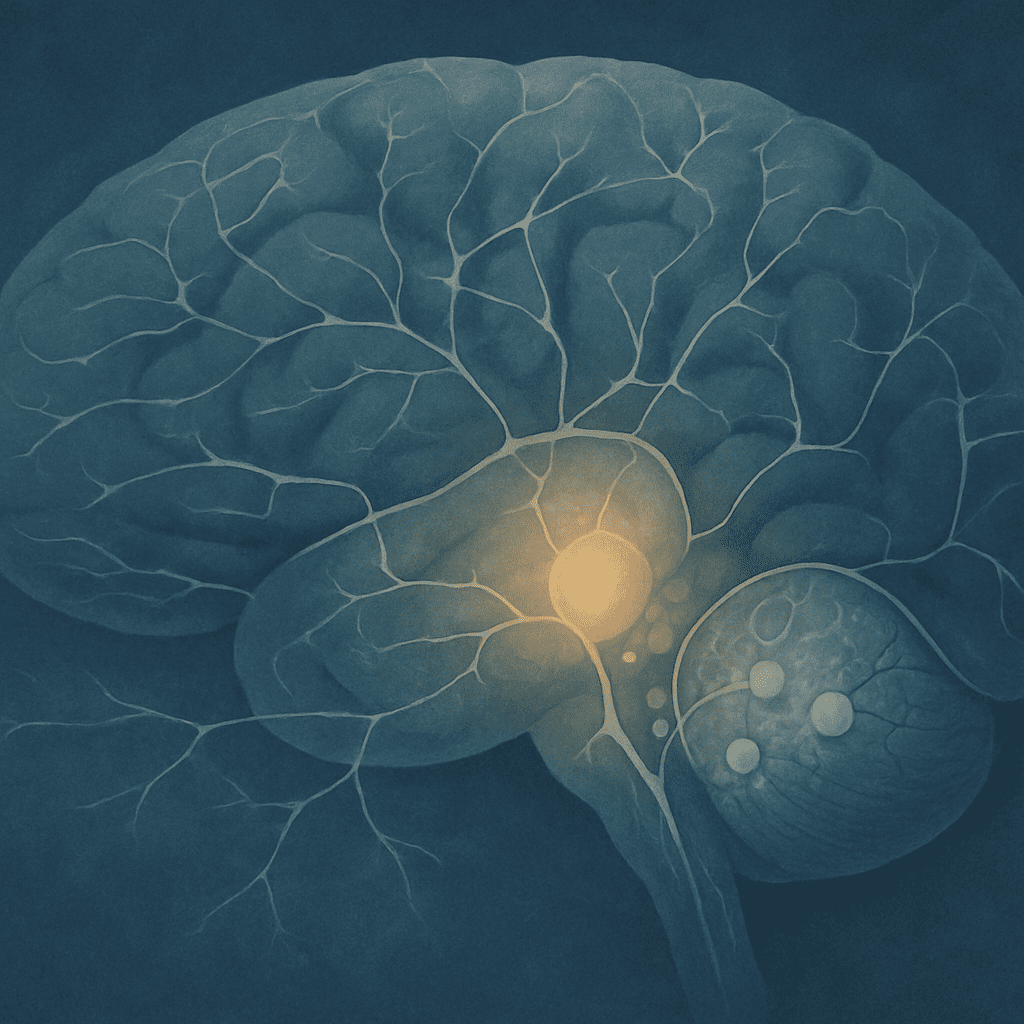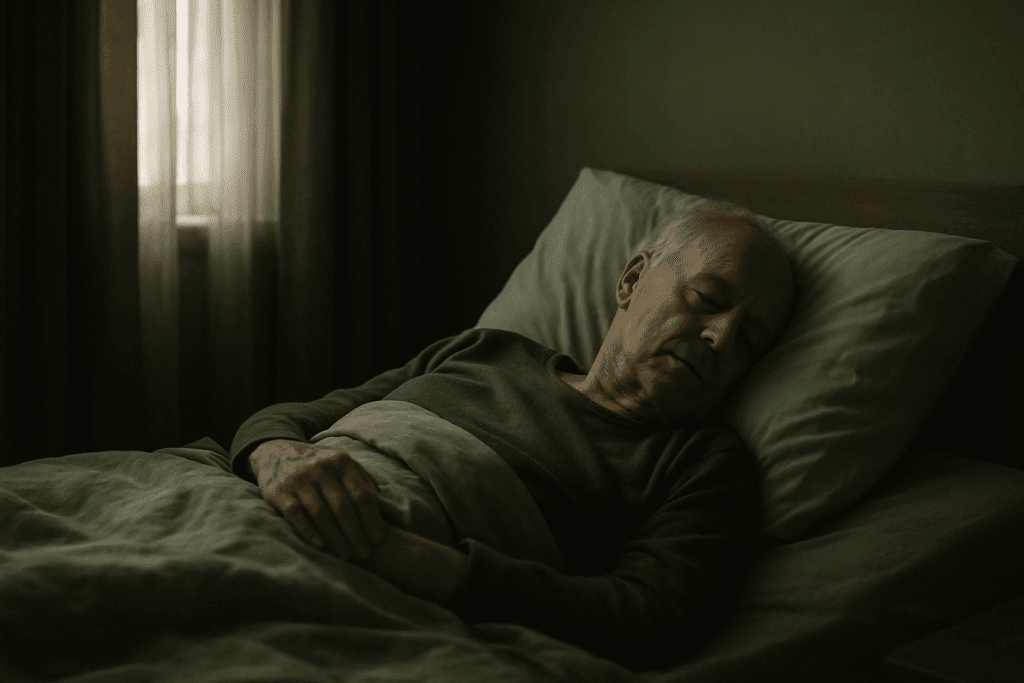Understanding the connection between dementia and changes in sleep patterns has become a growing focus in cognitive health research, particularly as families and caregivers notice their loved ones spending more time in bed. The question often arises: why do people with dementia sleep a lot? For many, the sight of a dementia patient sleeping more than usual is both puzzling and concerning. What initially appears to be simple exhaustion may, in fact, reflect a deeper constellation of biological, neurological, and emotional changes occurring in the brain. This phenomenon is far more than a benign or age-related tendency—it is a complex marker of progression, disruption, and the body’s way of responding to neurodegeneration.
In this comprehensive discussion, we will explore how dementia affects sleep, why excessive sleeping occurs, and when it may point to complications that require clinical attention. Importantly, we will address not only the quantity of sleep but also the quality, variability, and impact on overall health, cognition, and quality of life. As we delve into the underlying causes, caregivers and families will gain valuable insights into when to seek help, how to support healthy routines, and how to differentiate between adaptive rest and dangerous fatigue.
You may also like: How to Prevent Dementia and Alzheimer’s Disease Naturally: Expert-Backed Strategies to Reduce Your Risk Through Lifestyle and Diet

The Biological Basis of Sleep Changes in Dementia
One of the key neurological hallmarks of dementia is the gradual breakdown of communication between neurons, particularly in areas of the brain involved in circadian rhythm regulation. The suprachiasmatic nucleus (SCN), a small region in the hypothalamus, orchestrates the body’s internal clock. In individuals with Alzheimer’s and other forms of dementia, this region often experiences early damage. This disruption can lead to irregular sleep-wake cycles, resulting in increased daytime sleepiness and nighttime restlessness.
As dementia progresses, the body loses its usual regulatory capacity, and people may begin to nap more frequently or sleep for extended periods. These shifts are not simply preferences for rest; they are physical responses to an altered neurological landscape. Consequently, when people ask, “Do dementia patients sleep a lot?” or “Why does a person with dementia sleep a lot?” they are often observing this internal collapse of rhythm and regulation. These changes are compounded by reduced physical activity, decreased exposure to daylight, and coexisting medical conditions such as depression, which is itself common in dementia.

Cognitive Decline and Energy Depletion
It is well established that even minor cognitive effort in dementia can be deeply fatiguing. A healthy brain can efficiently sort, process, and respond to stimuli, but a brain affected by dementia must expend far more energy to achieve the same outcomes. This energy drain results in both mental and physical exhaustion, a state sometimes referred to as dementia fatigue. Unlike typical tiredness, this type of fatigue is not always alleviated by sleep or rest. Instead, it accumulates with each cognitive task, conversation, or environmental demand.
For this reason, it is not unusual to see a dementia patient sleeping more in response to increased confusion, overstimulation, or effortful activity. As caregivers navigate the realities of supporting loved ones through progressive decline, recognizing this unique type of fatigue becomes critical. Excessive sleep may reflect the body’s attempt to recover from daily cognitive strain, especially in middle to later stages of dementia. So when families notice that a dementia patient is not eating and sleeping all day, it may not be laziness or stubbornness, but a form of collapse in the body’s reserve systems.

The Role of Neurodegenerative Progression in Oversleeping
As dementia moves into its more advanced stages, oversleeping often becomes more pronounced. The damage to brain structures deepens, affecting not only memory and executive function but also autonomic and metabolic functions. This neurodegenerative burden contributes to a higher propensity for sleep and decreased responsiveness to environmental stimuli. Sleep becomes less of a structured event and more of a default state, especially as wakefulness becomes harder to maintain.
When caregivers ask, “Do Alzheimer patients sleep a lot?” the answer is typically yes, particularly in later stages. Alzheimer’s disease is notorious for causing fragmented nighttime sleep and increased napping during the day. These sleep disturbances can evolve into extended periods of unresponsiveness or even disordered consciousness in the final phases of the disease. This is when the pattern of a dementia patient not eating and sleeping all day becomes a clinical red flag, possibly signaling systemic shutdown or the approach of end-of-life stages.

Fatigue, Depression, and Apathy in Dementia
It is critical to differentiate between physical fatigue and emotional or psychiatric contributors to excessive sleep. Depression, which frequently coexists with dementia, can manifest as increased sleep, withdrawal from activity, and profound apathy. While it may be tempting to view sleep as harmless rest, persistent oversleeping in this context can exacerbate cognitive decline and further isolate the patient. Families might observe that their loved one seems disengaged, barely responds to conversations, and appears to retreat into long periods of sleep.
Dementia and fatigue are intricately linked, but understanding the emotional undercurrents of this relationship can help tailor treatment approaches. Antidepressant therapy, cognitive behavioral strategies, and environmental enrichment have shown some benefit in mitigating depressive fatigue. Moreover, lack of stimulation can worsen both emotional and cognitive function. Thus, when evaluating why dementia patients sleep a lot, a complete mental health assessment is essential to rule out or treat coexisting mood disorders.
Medication, Comorbidities, and Medical Side Effects
Many dementia patients are prescribed multiple medications, some of which may induce drowsiness as a side effect. Sedatives, antipsychotics, and certain anticonvulsants are commonly used to manage behavioral symptoms, agitation, or sleep disruptions. However, these medications can inadvertently suppress alertness, especially when used in combination. This pharmacological sedation can compound natural sleepiness and mislead caregivers into thinking that sleep is entirely dementia-related.
It is also important to consider other chronic illnesses that may contribute to sleepiness. Conditions such as heart failure, kidney disease, and hypothyroidism can all result in fatigue and decreased energy. Therefore, when a dementia patient is sleeping more, it is important for healthcare providers to conduct a full clinical evaluation, including laboratory testing and medication review. Overlooking these contributing factors may delay interventions that could improve wakefulness and overall quality of life.
When Sleep Signals Something More Serious
Though increased sleep is often expected in dementia, there are circumstances in which it signals more serious concerns. A sudden increase in sleep duration, particularly if accompanied by loss of appetite, incontinence, or changes in breathing patterns, may indicate an acute medical event or terminal decline. These signs should never be dismissed as mere aging or progression; they require immediate clinical evaluation.
Caregivers often ask, “Should you let a dementia patient sleep all day?” The answer depends on context. While rest is essential, complete withdrawal from daily life can accelerate decline, both physically and cognitively. It may also obscure other underlying health crises, such as infections, strokes, or metabolic imbalances. A pattern where the dementia patient is not eating and sleeping all day is particularly worrisome and should prompt urgent medical attention. Hospice providers are often brought in at this point to offer palliative support and ensure comfort in the final stages.

Environmental Factors and Sleep Hygiene
Sleep is also influenced by the environment in which a dementia patient lives. Poor lighting, lack of exposure to daylight, noise disturbances, and inconsistent routines can all disrupt circadian rhythms. Simple changes such as increasing natural light exposure during the day, reducing stimulants like caffeine, and implementing a regular sleep schedule can sometimes improve sleep quality and reduce daytime sleepiness.
Creating an environment conducive to restful sleep without encouraging oversleeping requires balance. For instance, while blackout curtains may be beneficial at night, they should be opened during the day to signal wakefulness. Gentle daytime activities, soothing music, and regular mealtimes can help reinforce a healthy routine. These practices are not merely lifestyle adjustments; they are therapeutic tools that can positively influence brain function and behavior.

Nutritional Considerations and Energy Metabolism
Nutrition plays a foundational role in maintaining wakefulness and cognitive function. When a dementia patient is not eating and sleeping all day, nutritional deficiencies may be both a cause and a consequence. Inadequate caloric intake, dehydration, and vitamin deficiencies—particularly in B-complex vitamins and iron—can contribute to lethargy and disorientation. Protein-energy malnutrition is especially common in advanced dementia and is associated with poorer outcomes.
Interventions such as nutrient-dense small meals, hydration reminders, and supplementation under medical guidance may offer meaningful benefits. Furthermore, involving a registered dietitian familiar with neurodegenerative disorders can help optimize nutritional status and potentially reduce excessive fatigue. While improving nutrition alone may not eliminate oversleeping, it can address an often-overlooked aspect of dementia care that directly impacts energy levels.
The Caregiver’s Role in Monitoring and Intervention
Caregivers are often the first to notice changes in sleep habits, appetite, and behavior. Their observations play a pivotal role in clinical decision-making, especially when the healthcare team may only see the patient periodically. Documentation of sleep duration, quality, patterns of alertness, and response to interventions can provide critical insight. These notes help determine whether the excessive sleep represents a baseline change, a response to external stressors, or a sign of impending medical issues.
Understanding whether to intervene or allow sleep is one of the most difficult decisions caregivers face. The question “Should you let a dementia patient sleep all day?” is not answered by one-size-fits-all advice. Instead, it requires nuanced evaluation, contextual awareness, and close communication with medical providers. By remaining attuned to shifts in behavior and advocating for individualized care, caregivers can help ensure that oversleeping does not go unnoticed or untreated.
Recognizing the Stages of Sleep Change Across Dementia Progression
Sleep patterns vary widely depending on the stage of dementia. In early stages, patients may experience only mild fatigue, occasional insomnia, or light napping during the day. However, as the condition advances, the cycles become increasingly disrupted. Middle-stage dementia often involves more frequent and longer daytime naps, fragmented night sleep, and increased difficulty maintaining alertness during conversations or activities.
In late-stage dementia, sleep can dominate much of the day and night. It becomes increasingly difficult to rouse the person, who may appear to be in a perpetual state of withdrawal. This decline in wakefulness is often misunderstood by families as deep rest, but in many cases, it reflects profound neurodegeneration. It is during this stage that families ask with urgency, “Do people with dementia sleep a lot, and is this normal?” The answer lies in understanding that while increased sleep is expected, sudden shifts or total disengagement always warrant medical reassessment.
A Holistic View: Respecting Rest While Encouraging Engagement
Striking the balance between respecting a dementia patient’s need for rest and promoting cognitive engagement is a delicate process. While it may be tempting to allow endless sleep in the hope of comfort, this approach can unintentionally reinforce apathy and hasten functional decline. Conversely, pushing too hard for activity can lead to agitation and frustration, particularly if the patient is in a fragile state.
The optimal approach involves gentle encouragement, structured routines, and an emphasis on moments of connection. Light activities like walking, music, reading aloud, or reminiscence therapy can offer cognitive stimulation without overwhelming the person. These efforts, when paired with adequate sleep hygiene and supportive caregiving, create a holistic strategy that honors the dignity and needs of the individual.
Frequently Asked Questions: Dementia, Fatigue, and Excessive Sleep
1. What are some lesser-known reasons why dementia patients may sleep so much during the day?
While neurological degeneration and circadian rhythm disruption are well-documented, emerging research suggests that chronic inflammation in the brain may also drive increased daytime sleepiness. Inflammatory markers like cytokines have been found in elevated levels in people with advanced dementia, contributing to both mental lethargy and physical fatigue. This inflammatory state can exacerbate dementia and fatigue, prompting the body to enter longer rest cycles as a coping mechanism. So when you ask, “Do dementia patients sleep a lot?” it may be partly due to the body’s internal immune response trying to shield the brain from further damage. Environmental boredom or sensory deprivation can also deepen the need for daytime rest, especially when cognitive engagement is minimal.
2. Can poor sleep quality at night explain why dementia patients appear to oversleep during the day?
Yes, disrupted nighttime sleep often triggers excessive napping or prolonged rest during the day. Sleep fragmentation, common in Alzheimer’s and other dementias, leads to poor restorative sleep, which increases the body’s demand for compensatory rest. This is one reason why people wonder, “Do Alzheimer patients sleep a lot?” In fact, they may not be sleeping excessively overall, but instead sleeping inefficiently and at irregular intervals. As a result, the pattern of a dementia patient sleeping more in the daytime could reflect a deeper sleep architecture disorder rather than simple tiredness.
3. Could excessive sleep indicate a reversible medical condition rather than dementia progression?
Absolutely. Conditions like anemia, low thyroid hormone levels, or undiagnosed infections can mimic or worsen fatigue in dementia. When asking, “Does a person with dementia sleep a lot?” it’s crucial to rule out treatable contributors to their sleep behavior. Blood work and physical exams can identify issues such as vitamin B12 deficiency or urinary tract infections, both of which are surprisingly common in elderly populations with cognitive decline. A reversible condition may explain why a dementia patient is not eating and sleeping all day, and treatment could help restore some wakefulness and energy.
4. How can caregivers differentiate between healthy rest and harmful oversleeping in dementia patients?
Healthy rest usually follows a pattern and is accompanied by periods of alertness, engagement, and interest in basic activities like eating or socializing. On the other hand, when a dementia patient is sleeping more and is difficult to rouse, disoriented when awake, or refusing food, it may signal a more serious problem. In those cases, caregivers often wonder, “Should you let a dementia patient sleep all day?” The answer lies in monitoring the balance between rest and function. Keeping a daily sleep log and noting changes in behavior can help distinguish between necessary rest and problematic withdrawal.
5. How does advanced dementia affect the brain’s ability to maintain wakefulness?
As dementia progresses, not only does memory suffer, but areas of the brain that regulate wakefulness—like the brainstem and thalamus—also undergo degeneration. This leads to a state where sleep becomes almost default due to reduced neurological input encouraging wakefulness. The question “Do people with dementia sleep a lot?” becomes particularly relevant in advanced stages, where damage to the brain’s alertness circuits makes staying awake increasingly difficult. It’s not just about being tired; it’s about a structural inability to maintain attention or energy. This neurobiological decline explains why stimulation must be carefully adapted to the patient’s remaining capacities.
6. Can sleep-inducing medications be a hidden cause of excess daytime drowsiness in dementia patients?
Yes, medications prescribed to manage behavioral symptoms or sleep disturbances can have unintended sedating effects. Drugs like benzodiazepines, antipsychotics, or even certain antihistamines can cause a dementia patient to sleep all day unintentionally. Families often ask, “Do dementia patients sleep a lot because of their condition, or are the meds contributing?” A medication review with a geriatric pharmacist or neurologist is essential to determine if adjustments can reduce unnecessary sedation. Even over-the-counter remedies like nighttime pain relievers or allergy meds should be evaluated. Pharmacologic sedation often overlaps with natural dementia and fatigue, making professional input vital.
7. What are some psychosocial effects of excessive sleeping in dementia patients?
Beyond physical and cognitive implications, sleeping too much can erode social bonds, diminish daily purpose, and increase caregiver distress. When a dementia patient is not eating and sleeping all day, it often leads to isolation and decreased social interaction. This disconnection may accelerate cognitive decline, as the brain thrives on stimulation and human connection. Additionally, caregivers may feel helpless or depressed, especially when they ask themselves, “Should you let a dementia patient sleep all day?” and are unsure how to respond. Providing structured interaction and gentle redirection can help preserve dignity and mental engagement.
8. How does excessive sleeping affect rehabilitation and physical therapy outcomes?
Excessive daytime sleeping significantly limits the effectiveness of rehabilitation efforts. When a dementia patient is sleeping more, they are less likely to participate in physical therapy, occupational therapy, or cognitive exercises. This inactivity weakens muscles, increases fall risk, and contributes to faster loss of function. The belief that “do people with dementia sleep a lot and it’s normal” can become a barrier to proactive interventions. Encouraging wakeful participation in short, well-timed therapy sessions may help maintain some degree of independence and physical health longer into the disease.
9. What role does nutrition play in managing sleep and fatigue in dementia patients?
Nutritional deficits can both result from and contribute to fatigue and excessive sleep. Malnutrition, dehydration, and electrolyte imbalances often go undetected in dementia because of communication difficulties. When a dementia patient is not eating and sleeping all day, clinicians must assess whether fatigue is being amplified by nutritional decline. Micronutrient supplementation and protein-rich snacks may boost energy levels and promote wakefulness. Addressing nutrition is a proactive way to challenge the assumption that all fatigue is due to dementia itself.
10. Are there emerging therapies or technologies that may help manage sleep disorders in dementia?
Yes, innovations in wearable sleep trackers, light therapy devices, and even AI-powered home systems are showing promise in helping manage sleep in dementia. Light therapy, in particular, can help regulate circadian rhythms by simulating natural daylight, which may reduce excessive daytime sleepiness. Families asking, “Do Alzheimer patients sleep a lot because of darkness or confusion about time?” may find these tools particularly helpful. Wearables can track subtle changes in sleep architecture, offering real-time insights for clinicians. Integrating technology into care plans can transform how we approach dementia and fatigue management in the home.
Conclusion: Understanding Dementia Fatigue and When Sleep Becomes a Warning Sign
The observation that dementia patients sleep a lot is not simply anecdotal—it is a medically recognized manifestation of cognitive decline, neurological dysfunction, and systemic fatigue. Whether families are wondering, “Do Alzheimer patients sleep a lot?” or asking more pointedly, “Does a person with dementia sleep a lot and is that cause for concern?” the answers require both clinical insight and compassionate awareness. Sleep is not inherently negative, but when paired with signs like poor appetite, reduced engagement, or altered consciousness, it becomes a potential indicator of deeper problems.
Understanding the underlying causes of oversleeping—whether due to the disease process, comorbidities, medication, or depression—empowers caregivers to make informed decisions. When a dementia patient is not eating and sleeping all day, the situation is rarely benign and should never be dismissed without proper evaluation. Ultimately, families and healthcare providers must work together to assess whether sleep serves as healing rest or warning signal, adjusting care plans accordingly.
Dementia and fatigue will always be interwoven, but they do not need to lead to despair or helplessness. With proper knowledge, attentive caregiving, and medical oversight, it is possible to support quality of life even in the face of progressive illness. And that, perhaps, is the most important answer to the question: why do people with dementia sleep a lot?
Further Reading:
Vascular dementia and excessive sleeping
Sleep changes in dementia: Why do people with dementia sleep a lot?


